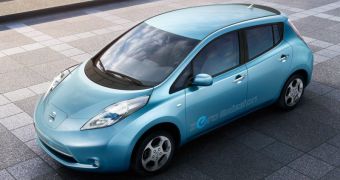Nissan North America Inc. has turned to Microsoft’s virtualization technology in order to shift server spending in reverse at two of its plants in the United States, namely Smyrna and Decherd. According to the Redmond company, the number of servers necessary to run manufacturing operations at the two locations dropped from 159 to no more than 28 after the car maker embraced Hyper-V. As it generally is the case, Nissan not only cut down on spending but also managed to boost efficiency and reduce energy consumption by 34%, all the while cutting the level of the impact on the environment.
“Over the past two to three years, our server population had exploded to almost 160 and was continuing to grow,” revealed Phil D’Antonio, manager of Conveyors and Controls Engineering, NNA. “It was extremely difficult to manage and it consumed numerous labor hours that could be used on other initiatives that add value to our operation.”
Hyper-V is Microsoft’s bare metal virtualization technology for servers, essentially a role of the Windows Server 2008 operating system. Because multiple operating systems can run inside virtual machines, the number of physical servers could be reduced to a fraction of what it used to be. Microsoft indicated that it took just 12 months for the two Nissan plants to go from 159 servers down to just 28.
“The Hyper-V technology was designed to create a more efficient system and help reduce environmental impact,” added David Graff, U.S. automotive industry solutions director at Microsoft. “That has helped Nissan achieve its main objectives.”
Reducing the number of servers necessary at the Smyrna plant is another step further for Nissan’s efforts to boots energy efficiency, which already is up 32% compared to the levels before 2005. Nissan pointed out that energy-saving practices generated cost savings of $3.5 million per year.
“We were able to reduce the growing cost associated with a sprawling system as well as cut energy usage by a third,” D’Antonio noted. “As an Energy Star partner, Nissan is committed to improving the energy efficiency of our business and protecting the environment for future generations.”

 14 DAY TRIAL //
14 DAY TRIAL //